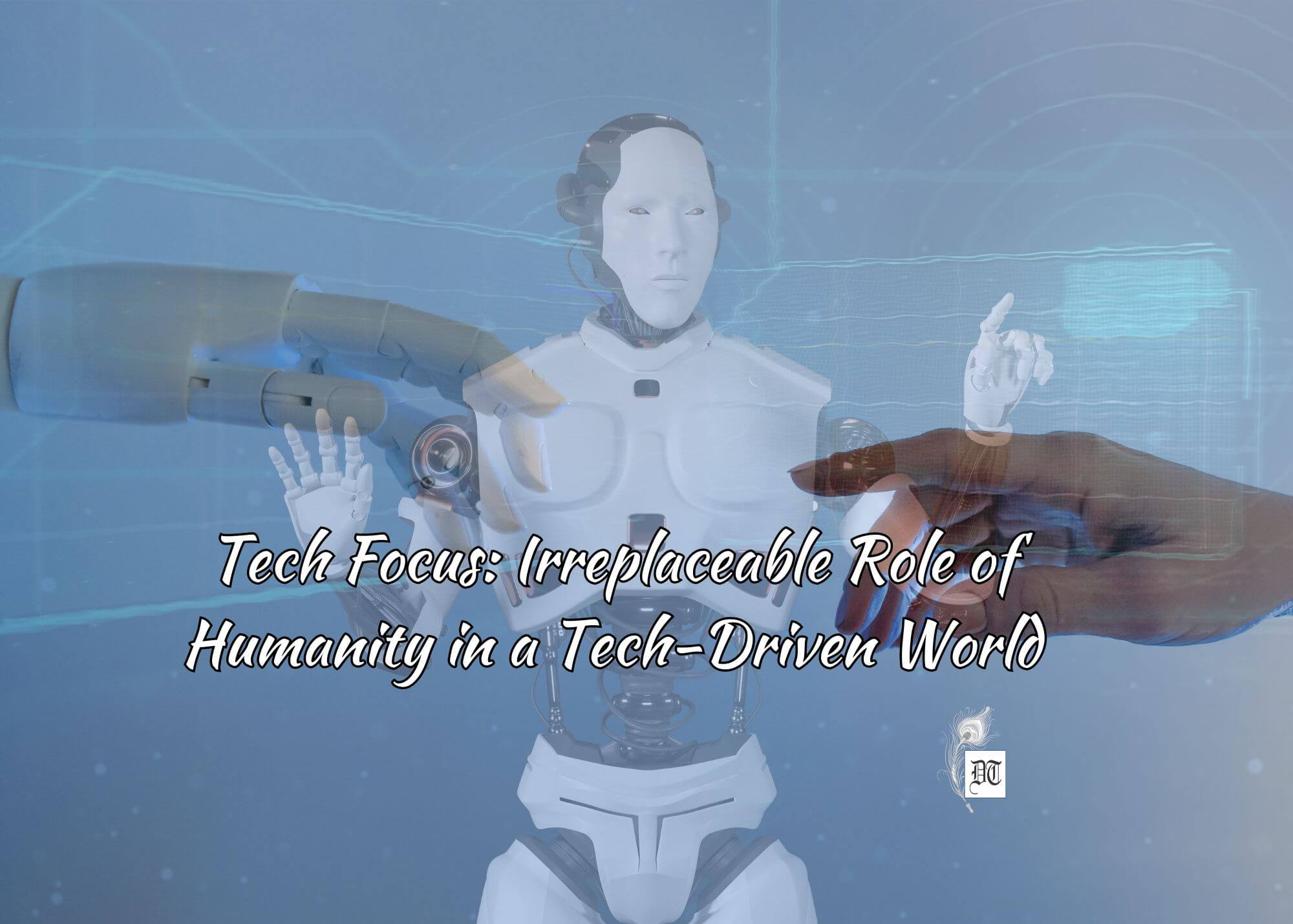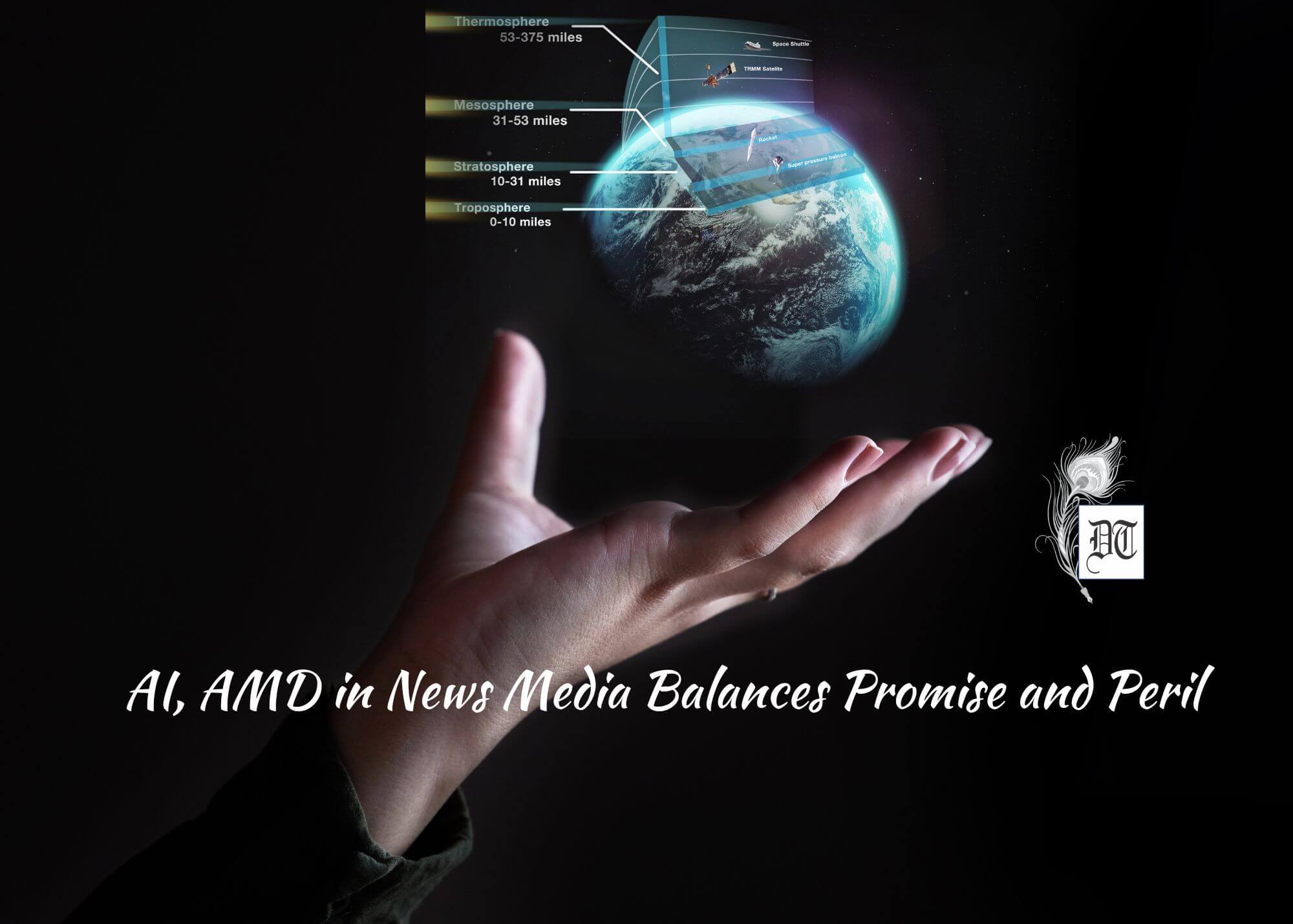Farheen emphasises the importance of preserving human qualities like empathy, creativity, and critical thinking in a warning against over-reliance on technology in an AI-dominated world, exclusively for Different Truths.
In an era where technology is advancing at an unprecedented pace, there is an ever-growing emphasis on integrating artificial intelligence (AI) into our daily lives. AI is becoming increasingly intertwined with human existence, from voice assistants that manage our schedules to sophisticated algorithms that predict our desires. However, amidst this rapid technological evolution, it is imperative to remember what it means to be human. As TS Eliot once pondered, “Where is the wisdom we have lost in knowledge? Where is the knowledge we have lost in information?” These lines encapsulate the delicate balance we must maintain: utilising technology while preserving our intrinsic human qualities.
The Human Element: A Literary Perspective
Literature has long celebrated the unique aspects of humanity. William Wordsworth’s poetry often reflects on the profound beauty of human emotions and the natural world. In his poem “Lines Written in Early Spring,” he writes, “And much it grieved my heart to think / What man has made of man.” Wordsworth’s lament serves as a poignant reminder that, in our pursuit of progress, we must not lose sight of our emotional depth and interconnectedness.
Similarly, John Keats, in his “Ode to a Nightingale,” speaks to the transcendence of human experience: “Thou wast not born for death, immortal Bird! / No hungry generations tread thee down.” Keats’ reflection on the immortal nature of art and the fleeting nature of human life encourage us to cherish the moments that make us uniquely human.
The Special Abilities of Being Human
Humans are endowed with extraordinary abilities that machines cannot replicate. Our capacity for empathy, creativity and critical thinking sets us apart. Consider the simple yet profound act of a mother comforting her child. No algorithm can replicate the warmth and reassurance of a human touch. It is in these moments that we find our true strength.
Moreover, our ability to dream and imagine allows us to innovate and solve complex problems. Albert Einstein famously said, “Imagination is more important than knowledge. Knowledge is limited, whereas imagination embraces the entire world.” This imaginative prowess is what has driven human progress for centuries, from the invention of the wheel to the exploration of space.
Our lives deep human experiences, such as telepathy and intuition, keeping promises, breaking them, surprising someone special, showing respect, being shyness, blushing, awkwardness, sharing, those first meetings with a love interest and so many other emotions. These elements make our lives worth living and remind us of the importance of maintaining our humanity.
Joy of Being Human: Anecdotes from Everyday Life
Humour and laughter are also quintessentially human traits that enrich our lives. Let’s take a light-hearted look at some day-to-day experiences that highlight our humanity.
· Grocery Store Conundrum: Have you ever found yourself in the supermarket, armed with a meticulously crafted shopping list, only to return home with a random assortment of items you didn’t need? There’s a certain charm in these little mishaps that reminds us of our fallibility and spontaneity. It’s these quirks that make life interesting.
· Art of Miscommunication: Despite advancements in communication technology, humans are still masters of misunderstanding each other. How many times have you sent a text that was completely misinterpreted? The classic “dinner at my place” turning into a group outing is a perfect example. These humorous blunders are a testament to the complexity and richness of human interaction.
· Alarm Clock Battle: The struggle between humans and alarm clocks is a daily saga. We set multiple alarms, each with a snooze button that’s our best friend and worst enemy. This ritual of waking up, filled with groggy determination, is a universal experience that unites us all in our shared battle against time.
Humanising AI: A Delicate Balance
As we integrate AI into various aspects of our lives, it’s crucial to humanise these tools without losing our humanness. AI should enhance our abilities, not replace them. Consider the role of AI in healthcare. While machines can analyse vast amounts of data to diagnose diseases, the empathy and compassion of a human doctor remain irreplaceable.
Furthermore, the ethical implications of AI must be carefully considered. In Aldous Huxley’s “Brave New World,” we are warned of a society where technological control strips individuals of their humanity. It is a stark reminder that as we develop AI, we must do so with a keen awareness of maintaining human dignity and autonomy.
We have already started paying the price for letting technology into our lives. The divorce rates are high and relationships do not have the same warmth and feeling they used to before technology infiltrated our homes. Attention spans have decreased significantly and values and morality have been compromised. The cancel culture isn’t being used for immoral and wrong acts. The entire system is hijacked by technology and the instant availability of all types of content without any regulation and censorship. The toll on our lives is evident, yet nobody ensures that internet usage is checked and understood for its potential disastrous repercussions on families, society and our country at large.
Why are we in a rush to be perfect and don’t understand the predicament of affecting every emotion we humans have if we use AI for everything and anything? There should be some regulations. Just imagine how people’s focus and engagement have been affected by using smartphones because of the instant dopamine that gets released when people use certain apps. One tap and one gets what they are looking for. The impatience and the beck and call nature of these technologies can’t be compared with humans. We need time to process what we need to do, whereas gadgets do it in a jiffy. People have gotten addicted to the idea of getting the response immediately; therefore, people expect the same from humans too. The impatience and the expectation of an instant response have led to a decrease in our attention span and patience.
Making a Difference: The Power of Human Agency
Humans have an unparalleled ability to make a difference in the world. Whether it’s through acts of kindness, innovative thinking, or standing up for what is right, our actions have the power to create positive change. As Maya Angelou eloquently put it, “We may encounter many defeats but we must not be defeated.” This resilience and determination are at the core of our humanity.
Consider the global response to crises such as natural disasters or pandemics. It is the collective human effort, driven by compassion and solidarity that brings about recovery and hope. Our ability to feel, empathise and act upon those feelings is what makes us truly remarkable.
Celebrating Our Humanity
As we continue to develop and integrate AI into our lives, let us not forget the essence of what it means to be human. Our ability to feel, imagine and connect with one another is irreplaceable. By embracing our humanity, we can ensure that technology serves us, rather than diminishes us. As Shakespeare famously wrote, “What a piece of work is man! How noble in reason, how infinite in faculty!”
Picture design by Anumita Roy





 By
By


 By
By